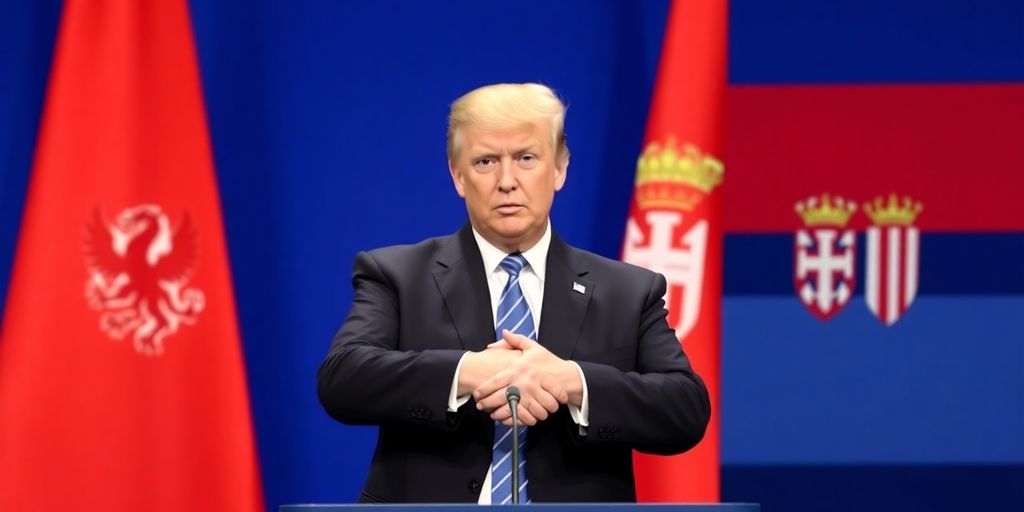Recent remarks by former U.S. President Donald Trump about his past mediation efforts in the Kosovo-Serbia dispute have sparked discussion about a potential renewed U.S. focus on the Balkans. While Trump’s references may currently be more rhetorical than substantive, the stalled EU-led dialogue and persistent regional challenges suggest a need for external impetus.
Key Takeaways
- The EU-led dialogue between Kosovo and Serbia has been stalled for over a year, with key agreements remaining unimplemented.
- Domestic political issues in both Kosovo and Serbia, coupled with growing disillusionment with the EU accession process, have contributed to the stalemate.
- The U.S. retains significant leverage and influence in the region, making a renewed diplomatic engagement a possibility.
The Stalled Dialogue
The dialogue, initiated in 2011 with U.S. backing, has struggled to achieve lasting progress. Despite an agreement in February 2023 on a "path to normalizing relations," which included Serbia’s de facto recognition of Kosovo and Kosovo’s commitment to establishing an Association of Serb-Majority Municipalities, a lack of agreement on the implementation plan’s sequencing led to further complications. Unilateral actions by both sides, including Pristina dismantling parallel Serbian structures and a failed armed incursion by Serbian insurgents in late 2023, have exacerbated ethnic segregation and international isolation. Consequently, the EU imposed restrictive economic measures on Kosovo, and Serbia’s EU accession process has been frozen.
Reasons for Renewed U.S. Engagement
Despite a lack of a clear U.S. strategy for Europe, recent diplomatic activities suggest a potential for increased engagement. The White House hosted a meeting between Armenian and Azerbaijani leaders, signaling a willingness to mediate other long-standing disputes. The U.S. maintains important assets and investments in the Balkans through NATO, and senior U.S. officials have recently made inroads. Discussions on a joint U.S.-Kosovo arms production program and the continuation of a significant U.S. energy program in Kosovo underscore this commitment. Furthermore, the U.S. Secretary of State launched a strategic bilateral dialogue with Serbia, calling for de-escalation in Kosovo and Bosnia and Herzegovina.
Continued U.S. involvement is crucial as ongoing disputes in the Balkans provide opportunities for Russia to disrupt NATO’s neighborhood and fragment markets. The demand for U.S. involvement remains strong, particularly in Kosovo, where there is deep mistrust in the EU’s ability to manage security challenges.
Trump Administration’s Potential Role
The current impasse in the EU-led dialogue, with the new EU mediator lacking sufficient political backing, highlights the need for an external jolt. Washington possesses decisive leverage over both parties and potentially greater convening power than the EU. While the Trump administration has not yet shown a strong interest in mediating Kosovo-Serbia talks, its unpredictable diplomatic initiatives could lead to engagement as a means to secure a foreign policy win. However, any renewed U.S. engagement must aim for durable solutions, complement EU efforts, and push for a final, legally binding agreement centered on mutual recognition to ensure lasting stability.
Sources
- Trump should kickstart Kosovo-Serbia talks into making real progress, Atlantic Council.






